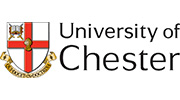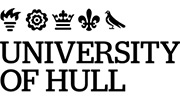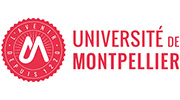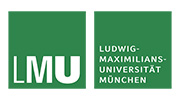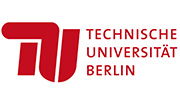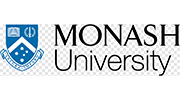Studying abroad is more than just an academic pursuit; it is a transformative journey that reshapes your worldview, enhances your career prospects, and fosters personal growth. At Cogent Education Consultants, we are committed to guiding Nigerian students through this life-altering experience, ensuring they reap the full benefits of international education.
Below are 20 Life-Changing Benefits -Real Stories, Real Impact:
We have successfully assisted students in gaining admission to top institutions across the UK, USA, Canada, Ireland, France, Australia, Spain, Germany, Malta, and Dubai. Our real stories and benefits are below:
1. Embrace a Global Perspective
In today’s interconnected world, embracing a global perspective through cultural immersion is more important than ever. Immersing oneself in a new culture expands worldviews, enhances personal growth, and develops key skills like adaptability and cultural sensitivity. These qualities are essential in modern workplaces, where collaboration across cultures is increasingly common.

Research by scholars such as Geert Hofstede and Milton Bennett supports the idea that cultural exposure leads to deeper intercultural understanding. Living abroad fosters not only knowledge of different customs and values but also resilience, emotional intelligence, and cognitive flexibility. People who immerse themselves in new environments tend to become more open-minded and creative problem-solvers.
Cultural sensitivity and adaptability are especially valuable in diverse work settings. Companies that are inclusive and multicultural are proven to be more innovative and successful. Professionals who understand cultural differences communicate better, build stronger relationships, and avoid costly misunderstandings.
Education systems also recognize the value of global learning. Students who participate in study abroad programs develop critical thinking skills and a stronger sense of global citizenship. Employers actively seek candidates with international experience because it reflects independence, initiative, and global awareness.
Beyond professional benefits, cultural immersion promotes empathy and a sense of shared humanity. It equips individuals to engage in global issues like climate change, migration, and inequality. In short, embracing a global perspective is not just a personal asset—it’s a lifelong advantage in shaping inclusive leaders and responsible global citizens.
2. Experience Diverse Educational Systems
Studying abroad offers a unique opportunity to experience different educational systems, each shaped by cultural values and academic traditions. This exposure significantly enhances a student’s critical thinking and problem-solving abilities vital skills in today’s complex, global workforce.
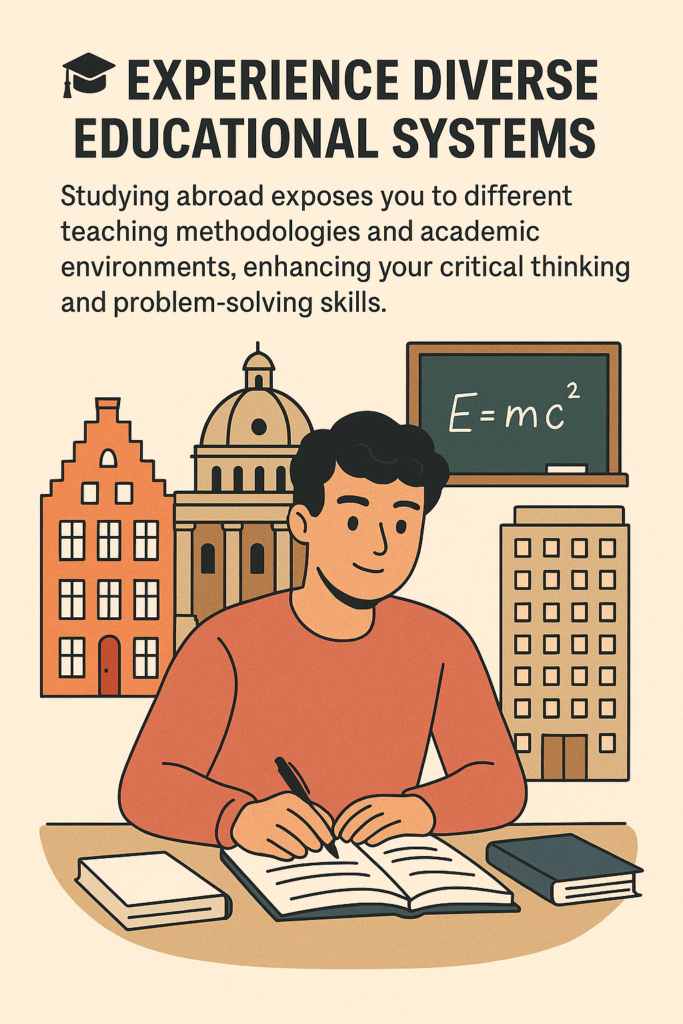
When students engage with unfamiliar teaching styles, such as problem-based learning in the Netherlands, seminar-driven discussions in the UK, or research-intensive approaches in Germany, they are challenged to think more independently and approach problems from multiple perspectives. These diverse academic environments encourage students to ask questions, debate ideas, and develop analytical reasoning. As a result, they become more intellectually flexible and capable of handling ambiguity traits highly valued by employers across all fields.
Experiencing another country’s academic culture also improves adaptability and resilience. Navigating a new grading system, unfamiliar coursework expectations, and different classroom dynamics teaches students how to manage uncertainty and overcome challenges—an essential aspect of professional growth.
Moreover, international academic exposure broadens a student’s understanding of global issues within their field of study. Whether in engineering, healthcare, business, or the arts, studying abroad can provide insights that are not typically available in a domestic setting. This global academic lens gives students a competitive edge, preparing them for leadership roles in multinational organizations, international NGOs, or global research teams.
In short, experiencing diverse educational systems does more than diversify one’s résumé it cultivates sharper thinking, cross-cultural competence, and a lifelong ability to learn and innovate in a global context.
3. Enhance Language Proficiency
Living and studying in a country where a different language is spoken offers one of the most effective ways to enhance language proficiency. Immersion in a new linguistic environment accelerates language acquisition far beyond what can be achieved in a traditional classroom setting. Daily conversations, academic coursework, and cultural interactions compel learners to think, speak, and respond in real-life contexts, significantly improving fluency and comprehension.

Unlike textbook learning, language immersion allows students to develop practical communication skills, including idiomatic expressions, local slang, and cultural nuances. These experiences refine listening and speaking abilities, boost confidence, and encourage active engagement with the language. Whether ordering food, navigating public transportation, or participating in class discussions, students are continuously challenged to apply and adapt their language skills in meaningful ways.
Moreover, multilingualism is a valuable asset in the global job market. Employers increasingly seek candidates who can communicate effectively across cultures, especially in international business, diplomacy, healthcare, and education. Language proficiency demonstrates adaptability, global awareness, and the capacity to work in diverse environments.
Research also shows that learning another language enhances cognitive functions such as memory, problem-solving, and multitasking. It fosters empathy and openness to new perspectives, qualities essential for leadership and teamwork.
In short, living abroad transforms language learning from an academic requirement into a powerful life skill. It not only opens doors to career opportunities but also deepens cross-cultural understanding and personal growth, making individuals more globally competent and socially attuned.
4. Boost Career Opportunities
Pursuing international education significantly enhances career prospects by signaling to employers that a candidate possesses initiative, resilience, and a global mindset. In an increasingly interconnected world, organizations value employees who are culturally competent, adaptable, and capable of thriving in diverse environments.

Studying abroad exposes students to new ways of thinking, problem-solving, and communicating. It equips them with cross-cultural communication skills and the ability to collaborate with people from different backgrounds—key qualities in multinational corporations, NGOs, startups, and public institutions. The challenges of living and learning in a foreign country—navigating new systems, overcoming language barriers, and adjusting to unfamiliar norms—build independence, adaptability, and perseverance.
Global experience also reflects a willingness to step outside one’s comfort zone, a trait that employers associate with leadership potential and innovative thinking. According to surveys by major recruitment agencies, graduates with international experience are often more competitive in the job market and command higher starting salaries.
Moreover, studying abroad can open direct career paths through internships, networking opportunities, or exposure to international job markets. Many students establish professional contacts or even secure job offers while abroad, giving them a head start in their chosen industries.
In today’s global economy, employers need professionals who understand international trends and can navigate cultural complexities. Graduates who have studied abroad bring unique perspectives and a broader worldview to the workplace, making them valuable assets to any team. Ultimately, international education doesn’t just enrich the mind—it propels careers forward.
5. Personal Development and Independence
Studying or living abroad is a transformative journey that fosters deep personal development and independence. Being in a new country, away from familiar support systems, compels individuals to step out of their comfort zones and take ownership of their decisions, routines, and overall well-being. This growth process builds self-reliance, emotional maturity, and confidence—traits that are essential not only in professional life but also in everyday living.
From managing finances and navigating public transportation to finding housing and forming new social circles, students and professionals abroad develop life skills that can’t be taught in a classroom. These experiences encourage critical thinking, resilience, and adaptability in the face of uncertainty. Over time, individuals become more resourceful and open to new perspectives.
Additionally, exposure to diverse cultural norms and lifestyles challenges previously held beliefs, promoting self-awareness and a broader understanding of one’s identity and values. This reflection often leads to greater empathy, humility, and a well-rounded worldview.
Independence gained through international living also translates to stronger leadership and decision-making abilities. Whether pursuing further education, launching a career, or building relationships, those who have lived abroad often approach life with greater confidence, flexibility, and emotional intelligence.

In essence, personal development through international experience is as impactful as academic or career benefits. It shapes individuals into proactive, thoughtful, and globally minded citizens who are better equipped to lead fulfilling lives and make meaningful contributions to society.
6. Build a Global Network
In today’s interconnected world, building a global network is essential for personal and professional growth. A global network expands opportunities, fosters innovation, and opens doors to diverse perspectives that local networks alone cannot provide. To build such a network, it is important to embrace cultural diversity and cultivate meaningful relationships beyond borders.
Start by leveraging digital platforms such as LinkedIn, industry-specific forums, and social media groups where professionals from different countries share ideas and collaborate. Participating in global conferences, webinars, and workshops also helps to connect with experts worldwide. These interactions not only increase your knowledge but also introduce you to potential partners, mentors, and clients.
Effective communication is key in maintaining a global network. Being mindful of cultural differences, language barriers, and time zones demonstrates respect and builds trust. Regularly engaging with contacts by sharing insights, offering support, or simply checking in keeps relationships alive and mutually beneficial.
Building a global network requires consistency and authenticity. Focus on quality rather than quantity by nurturing genuine connections that align with your goals and values. Such a network empowers you to access resources, ideas, and opportunities that fuel career advancement and innovation.
Ultimately, a global network is not just about expanding your reach—it is about creating a community of diverse, dynamic individuals who inspire and challenge you to grow. By investing time and effort into building this network, you position yourself for success in an increasingly globalized world.
7. Discover New Interests and Hobbies
Studying abroad is an incredible opportunity to discover new interests and hobbies that can shape your personal and professional life in profound ways. Immersed in a different culture, you’re naturally exposed to diverse activities, traditions, and ideas that spark curiosity and encourage exploration beyond your comfort zone.
One of the key benefits of studying abroad is the chance to try hobbies you might never have encountered at home. Whether it’s learning a new sport, experimenting with foreign cuisines, joining cultural clubs, or picking up a new language, these experiences deepen your understanding of the world and yourself. Engaging in new activities not only makes your time abroad memorable but also cultivates valuable skills such as adaptability, creativity, and resilience.
Discovering new hobbies abroad also enriches your social life. Participating in local events or student organizations connects you with like-minded peers and helps build friendships that cross borders. This network of diverse friends often becomes a source of inspiration and support, encouraging you to try even more new things and grow holistically.
Furthermore, hobbies discovered while studying abroad often become lifelong passions. They bring balance to your academic and professional life, reduce stress, and enhance your mental well-being. These new interests can also boost your career by highlighting your willingness to embrace change and learn continuously — qualities highly valued by employers worldwide.
Ultimately, discovering new interests and hobbies abroad contributes to a richer, more fulfilling life. It broadens your perspective, enhances cultural appreciation, and empowers you to become a more confident, well-rounded individual ready to thrive in an increasingly globalized world.
8. Enhance Cognitive and Creative Skills
One of the most profound benefits of studying abroad is the significant boost it gives to your cognitive and creative abilities. Immersing yourself in a new environment—often with a different language, educational system, and cultural norms—naturally stimulates the brain and challenges you to think in ways you may never have experienced before. These challenges sharpen your problem-solving abilities, enhance your memory, and improve your capacity for adaptive thinking.
Navigating unfamiliar situations, such as figuring out public transport in a foreign city or understanding a different approach to academic tasks, compels you to think on your feet. You become more mentally agile, better at weighing multiple perspectives, and quicker at finding innovative solutions. These experiences train your brain to become more flexible, making you not just smarter but also more inventive.
Creativity, in particular, flourishes in diverse environments. Exposure to new art forms, traditions, languages, and ways of life introduces you to a wide array of influences and ideas. This broadens your creative mindset, helping you to approach challenges with originality and empathy. Whether you’re an artist, engineer, entrepreneur, or scientist, these new perspectives can inspire breakthrough ideas and new ways of thinking that are deeply rooted in global awareness.
Moreover, many academic institutions abroad encourage interdisciplinary learning and critical thinking over rote memorization. This educational approach nurtures curiosity, collaboration, and intellectual independence—key elements in both creativity and lifelong learning. You’re not just absorbing information; you’re learning how to learn in a rapidly changing world.
Over time, this combination of mental stimulation and creative exposure contributes to long-term personal growth. You return home with a sharpened intellect, a fresh outlook on problem-solving, and a deeper understanding of the human experience across cultures. These enhanced cognitive and creative skills stay with you, enriching your career, your relationships, and your capacity to adapt and thrive in any environment. Studying abroad doesn’t just change your surroundings—it fundamentally transforms how you think and imagine the world.
9. Strengthen Graduate School Applications
One of the most transformative benefits of studying abroad is the opportunity to build a global network. Beyond academics, it offers the unique chance to connect with people from all walks of life—fellow students, professors, professionals, and local community members—creating a diverse web of meaningful relationships across continents.
A global network is not only about collecting contacts but about building genuine relationships with people who think differently, come from different cultural backgrounds, and can offer new ways of seeing the world. These connections help you grow personally and professionally. Through daily interactions, group projects, internships, and community involvement, you gain insights into how people approach challenges and opportunities in different parts of the world.
Such a network can open doors to global career opportunities, research collaborations, startup partnerships, or even lifelong friendships. It also helps develop essential soft skills such as cross-cultural communication, adaptability, and empathy—skills highly valued in today’s global job market. This exposure makes you more confident and comfortable navigating international environments, a major asset in any career path.
Moreover, staying connected with your global network after your studies ends continues to provide value. Whether it’s through social media, alumni groups, or international professional associations, maintaining those connections keeps you informed, inspired, and potentially supported in new ventures or global pursuits.
In essence, building a global network while studying abroad enriches your life beyond the classroom. It’s a long-term investment in your future—one that fosters lifelong learning, broadens your worldview, and positions you as a truly global citizen in a rapidly changing world.
10. Cultivate a Global Mindset
Studying abroad is a powerful catalyst for developing a global mindset—an essential trait in today’s interconnected world. When you immerse yourself in a new culture, surrounded by people with different values, traditions, and worldviews, your perspective begins to shift. You no longer see the world through a single lens; instead, you gain the ability to understand and appreciate diverse viewpoints, cultures, and approaches to life.
This exposure to global diversity nurtures empathy and cultural sensitivity, allowing you to engage thoughtfully and respectfully in cross-cultural situations. Whether you’re collaborating on a group project with international classmates, participating in cultural festivals, or simply living daily life in a different country, each experience contributes to a more inclusive and open-minded way of thinking.
Having a global mindset means being able to communicate and collaborate effectively across cultures. It enhances your ability to solve problems with input from multiple perspectives, adapt your behavior in various cultural settings, and approach challenges with a flexible and inclusive attitude. This mindset is increasingly valuable in careers that demand international collaboration or serve diverse communities, giving you a significant edge in a global job market.
Beyond professional benefits, cultivating a global mindset fuels lifelong learning. It inspires curiosity about the world, motivates travel, and encourages ongoing exploration of new cultures, languages, and ideas. You become more aware of global issues and better equipped to contribute to meaningful solutions—whether it’s in sustainability, education, public health, or innovation.
Personal growth is also at the heart of this transformation. You develop humility, tolerance, and self-awareness as you compare your values and assumptions with those of others. These experiences not only make you more worldly and wise but also more adaptable, resilient, and compassionate.
Ultimately, studying abroad is more than an academic journey—it’s a transformative life experience that opens your mind and heart to the richness of the world. By cultivating a global mindset, you become a more engaged global citizen, ready to make a positive impact wherever life takes you.
11. Develop Adaptability and Problem-Solving Skills
Studying abroad is one of the most effective ways to develop adaptability and sharpen your problem-solving skills—two essential traits for thriving in today’s dynamic, fast-changing world. When you step outside your home country, you step into unfamiliar territory: new customs, different academic systems, new social norms, and sometimes even a new language. Navigating this unfamiliar environment demands flexibility, quick thinking, and resilience.
Adaptability begins the moment you arrive in your host country. From managing daily tasks like finding your way around, using public transport, or shopping in a different currency, to adjusting to new teaching styles or living arrangements, every challenge requires you to think on your feet. As you overcome these challenges, you gradually become more open-minded, independent, and resourceful.
Problem-solving becomes second nature. When faced with unexpected obstacles—such as administrative issues, language barriers, or miscommunications—you learn to assess situations calmly, identify solutions, and act decisively. These real-life experiences provide a kind of learning that textbooks cannot teach: experiential learning that fosters confidence and critical thinking.
Employers and institutions around the world value individuals who can handle uncertainty and think creatively in complex situations. By building these skills while studying abroad, you gain a competitive edge in both your academic and professional journey. You’re not just learning how to survive in a different country; you’re mastering how to thrive in unfamiliar, high-pressure environments.
Ultimately, developing adaptability and problem-solving skills abroad prepares you for any path you choose. It shapes you into a resilient, self-aware individual ready to take on challenges and create solutions—wherever life takes you.

Begin Your International Education Journey with Cogent Education Consultants, Apply below
- Personalized Counseling: Tailored guidance to select the right course and destination.
- Application Assistance: Expert support in preparing and submitting university applications.
- Visa Processing: Streamlined assistance to navigate visa requirements confidently.
- Career Consulting: Strategic advice to align your education with career goals.
- Training Programs: Skill development to prepare you for academic and professional success.
Ready to embark on your global education journey? Apply Now or contact us at +234 803 919 9255 or info@cogenteducationng.com for a free consultation.
11 Life-Changing Benefits of Studying Abroad – Real Impact
Studying abroad is more than just an academic pursuit; it is a transformative journey that reshapes your worldview, enhances your…





